Day 1: 27 February 2024
The forum started with keynote addresses from the Head of HSBC UAE, and the head of the UAE securities market regulator (the Securities and Commodities Authority).
Panel discussions were held with market infrastructures of the Gulf Cooperation Council (GCC) countries (the UAE, Bahrain, Oman, Saudi Arabia, Qatar and Kuwait) and Egypt. These mainly focused on recently implemented market developments and planned future developments.
Other discussions concerned the challenges faced by some countries as they try to move from being ‘frontier’ to ‘emerging’ markets. Of the current GCC member nations, Bahrain and Oman are frontier markets, while the rest are emerging. (The only non-GCC attendee at the Forum was Egypt, which is classified as an emerging market.)
The GCC is trying to open up the respective capital markets to the GCC’s investors. This is currently being achieved with the Tabadul platform implemented by the Abu Dhabi Securities Exchange (ADX), along with the respective market entities signing agreements with their counterparts in other GCC countries.
The exchanges currently on the Tabadul platform are the ADX itself, Bahrain Bourse (BHB), and Muscat Stock Exchange (MSX). Several other GCC exchanges are also in the process of becoming members of Tabadul.
In addition, the US$35bn investment in Egypt made by the sovereign wealth fund Abu Dhabi Development Holding Company PJSC (trading as ADQ) is the biggest foreign direct investment into the region to date. It will help to boost Egypt’s dwindling foreign exchange reserves.
Across the GCC, the focus is on gaining dual listings from the Chinese capital market and discussions are underway to make this happen. There is also a sharp focus on leveraging the close ties the GCC has across Asia.
T+1 settlement and the GCC
The GCC is not looking at shortening its settlement cycle at the moment, but it is closely monitoring the move to T+1 by other countries.
The reluctance of the GCC to shift to T+1 could be because of the working days in the Middle East (most markets trade from Sunday to Thursday) – though this might change to align with the UAE workweek of Monday to Friday, which launched in January 2023.
The main focus for the Middle Eastern markets in general is to move to ‘emerging market’ status. Most markets in the Middle East follow the T+2 settlement cycle, with some making the move from T+3 to T+2. Qatar moved to T+2 on 25 March 2024).
The region is looking at opening its respective markets to regional investors – over the course of the Forum we formed the impression that the shortening the settlement cycle is something that will need to be worked on at a regional level, rather than at the market level.
The markets currently following the T+3 settlement cycle (Kuwait, Lebanon, Morocco, Oman) may look to shorten the settlement cycle to T+2 but shortening the settlement cycle to T+1 is not something that will happen in the near future.
Environmental, social and governance issues
All markets in the GCC are concerned with ESG issues:
- ESG reporting is voluntary in 2024 but will be mandatory from 2025.
- Most GCC countries are working towards a Net Zero carbon emissions target.
- Research into carbon-trading platforms is underway. During COP28, the UAE market-trialled the pilot carbon-trading platform. The results are now being analysed, but it was clear from Forum discussions that there is market demand for such a platform.
Digital assets and the gold tokenisation platform
HSBC gave a presentation on digital assets and the services it provides in that space. Mark Williamson, Global Head of FX and Commodities Partnerships and Propositions, spoke about:
- the bank’s experience as one of the pioneers of distributed ledger technology (DLT); and
- how HSBC has used DLT since 2018 for post-trade FX confirmations and cross-border payment vs payment, having settled over US$8tn to date.
Additionally, HSBC provided an overview of the new world of gold and the gold tokenisation platform that launched in October 2023. This platform offers a simple and cost-effective mechanism for customers to own physical gold held in HSBC's vault in London.
Cyber security
The TM team spoke to market entities about cyber security. GCC countries do not have any rules or regulations around cyber security yet – though it is an area the GCC regulators are looking at.
The infrastructure entities have their own cyber security requirements in place but, again, this is not something mandated by the local regulators and no cyber security reporting is currently in place.
Day 2: 28 February 2024
Day two of the Forum for Stacey Fernandes and Caroline McCreadie from the Thomas Murray team was a series of one-to-one meetings with the market infrastructures of the GCC and Egypt.
UAE: Dubai Financial Market; Dubai Central Securities Depository, and Dubai Clear
Stacey and Caroline met with representatives of the Dubai Financial Market (DFM), the Dubai Central Securities Depository (DCSD), and Dubai Clear. Dubai Clear is a relatively new central counterparty clearing house (CCP); it was established in April 2020, and is a full member of the CCP12.
In October 2023, the European Securities and Markets Authority (ESMA) withdrew its recognition of the three CCPs based in the UAE, namely:
- the Dubai Commodities Clearing Corporation;
- Dubai Clear LLC; and
- Nasdaq Dubai Ltd.
Recognition was withdrawn because of the UAE’s inclusion on the European Commission’s list of high-risk third countries with strategic deficiencies in their anti-money laundering (AML) and counter-financing of terrorism regimes.
However, on 23 February 2024, the Financial Action Task Force removed the UAE from the AML grey list, and the European Commission also subsequently removed it from the list of high-risk jurisdictions.
Dubai Clear will likely reapply to be recognised as a Tier 1 third-country CCP – however, at this point it is not known if it will have to make a full application, or if allowances will be made for it as a previously recognised member.
Dubai Clear advised that it experienced little impact when ESMA removed the UAE’s CCPs from its list, because Dubai Clear did not have any foreign clients at the time.
Market updates
- DFM is working with the Chinese capital market on dual listings. In November 2023, the DFM, Nasdaq Dubai, and the Shanghai Stock Exchange signed a memorandum of understanding (MoU) in an effort to promote the exchange of knowledge, expertise and information, and enhance efficiency and transparency in both jurisdictions. It also facilitates joint product development including an index or indices, exchange-traded funds (ETFs), ESG and sustainability-linked products. In addition, DFM is working on regional linkages and with SIX Switzerland.
- The project to implement the latest version of the Nasdaq system is in the pipeline. However, no timeline was disclosed.
- The DFM is developing a private market, with three companies expected to list initially.
UAE: Abu Dhabi Securities Exchange
At the ADX, the focus is on upgrading core systems and setting up the three entities (i.e., the exchange, the CSD and the CCP) separately with the required rules and regulations in place per entity. This was due to launch on 1 March 2024, but has been delayed until later in the year.
Market updates
The main development is the replacement of the current trading, clearing and settlement, and depository systems at ADX as part of the Core Platform Upgrade (CPU) project. The project was initiated in June 2021 and is tentatively set to be implemented in Q3/Q4 of 2024.
- The ADX cash CCP is expected to go live at the same time as the system upgrade. The CCP will be a 100% subsidiary of the ADX.
- The ADX derivatives market was launched in 2021 and is on the new Nasdaq system, Nasdaq Machine Engine (NME).
- Discussions are ongoing with the Central Bank of the UAE (CBUAE) to appoint CBUAE as the settlement bank and use central bank funds for cash settlement. This is forecast to go live with the implementation of the new system.
- Discussions are in progress with its Chinese counterparts for dual listings. ADX has signed an MoU with the Shenzhen Stock Exchange (SZSE) with an aim to facilitate cooperation on cross-border indices and ETFs, explore cross-border financing of listed companies, research fixed-income products, and advance market development in both jurisdictions.
- An MoU has also been signed with the Luxembourg Stock Exchange to facilitate dual listings, leverage ESG data, and so on.
- Dual listings of ETFs are in discussion.
UAE: Dubai Financial Services Authority
The Dubai Financial Services Authority (DFSA) is the independent regulator of financial services conducted in or from the Dubai International Finance Centre (DIFC), a purpose-built financial free zone. Caroline and Stacey met with its representatives.
Market updates
- The DFSA introduced regulations on crypto currencies in 2022.
- The focus is on implementing an over-the-counter (OTC) market. It is looking at regulations for OTC trading.
- Monthly reporting of market participants is in place. However, the exchanges are responsible for the overall oversight of participants.
Kuwait
Caroline and Stacey were advised that the market has no immediate plans to reduce the current T+3 settlement cycle. It said that the working days would need to change to reduce the settlement cycle.
The strategic focus is on splitting the three entities (the exchange, the CSD and the CCP) and putting in place the required rules and regulations per entity, which are expected in Q3/Q4 2024.
Thomas Murray is due to visit this market in Q3/2024 for onsite due diligence.
Market updates
- Kuwait Clearing Company (KCC) platform for annual general meetings (AGMs): It is mandatory for all listed companies to use the KCC AGM platform. The second phase of the project will involve live participation during meetings, and the introduction of proxy cards and voting cards.
- Market-wide testing is ongoing for the implementation of the market development project.
- The separation of the existing entities – i.e., the CSD, the exchange and the CCP – is expected to be complete by Q3/Q4 2024.
- The derivatives CCP is expected to go live after the cash CCP goes live.
- Securities lending and borrowing regulations are under review.
- Multi-currency settlement is under consideration as a way of helping with the settlement of fixed-income securities, starting with the US dollar.
- Digital assets: Crowdfunding regulations went live in January 2024. The fintech project looks at the licensing of assets on the Kuwait Stock Exchange and will be subject to the approval of the Central Bank of Kuwait.
Oman
Market updates
- The MSX and Muscat Central Depository (MCD) are both considering replacing their current settlement systems and are issuing requests for proposals.
- ESG reporting is voluntary for 2024 and will be mandatory from 2025.
- Focus remains on the divestment plans in the market.
- The Oman Investment Authority, which is the holding company of both MSX and MCD, has 160 companies under its umbrella. It is planning to list some companies to increase liquidity in the market. Four initial public offerings (IPOs) are in the pipeline for 2024.
- Oman is establishing an alternative market for family businesses.
- Oman is looking at ways it can move from ‘frontier’ to ‘emerging’ market status.
- The Omani market has consolidated its pension funds.
- MSX launched an AGM platform.
Bahrain: Bahrain Bourse, Central Bank of Oman, and Bahrain Clear
Representatives of BHB, the Central Bank of Oman and Bahrain Clear met with Stacey and Caroline to provide an overview of recent developments in the Bahraini market.
Market updates
- Bahrain Clear implemented a new delivery-versus-payment model on 14 March 2024. A grace period of three months following the effective date has been provided to facilitate a smooth transition for all stakeholders.
- Government-led IPOs are in the pipeline.
- The regulation of digital assets (tokens) was updated in March 2023.
Saudi Arabia: Tadawul Exchange, Edaa, and Muqassa
Stacey and Caroline met with representatives of the Tadawul Exchange, Edaa (the securities depository centre) and Muqassa (which provides central counterparty clearing services for all securities traded on the Saudi exchange).
Thomas Murray is scheduled to visit Saudi Arabia in Q3 of 2024 for onsite due diligence.
Market updates
- The Tadawul Group is looking at market linkages across the GCC.
- Tadawul has a particular interest in the Chinese capital markets, Shanghai and Shenzhen. MoUs for dual listings have been signed with Hong Kong, Singapore, and Chinese counterparts.
- Phase 2 of the post-trade transformation programme is to be implemented in June 2024 (SWIFT messaging 20022, reporting).
- Plans are progressing to accept non-cash collateral (i.e., equities).
- Wamid, a Saudi Tadawul Group (STG) subsidiary, is concerned with the digital side of STG’s business.
- The Saudi Central Bank (SAMA) Netting Law is expected later this year.
Qatar: Edaa, Qatar Financial Markets Authority, and HSBC
Representatives of Edaa, the Qatar Financial Markets Authority (QFMA), and HSBC also met with Stacey and Caroline on the second day of the HSBC MENAT Forum.
Qatar plans to move to T+2 on 25 March 2024.
Market updates
- The QFMA, the Qatar Central Bank (QCB) and Qatar Financial Centre Regulatory Authority have developed an action plan to develop the Qatar capital market.
- There is a plan to implement two CCPs in the market (i.e., equities and derivatives), though no timeline has yet been set.
- The derivatives exchange has a tentative launch date of June 2024.
Egypt: Egyptian Central Securities Depository
The Egyptian CSD met with Caroline and Stacey. ECSD went live with the migration of treasury bonds from MCDR and treasury bills from the Central Bank of Egypt (CBE) on 14 May 2023 and 24 September 2023, respectively.
The wars in Gaza and Sudan, right on Egypt’s borders, damage Egypt’s already fragile economy. Revenue from the Suez Canal has dropped by 50% and the tourism industry has taken a huge blow.
However, Egypt has signed a deal with the UAE government that means Egypt will receive US$35bn to build a new city. This is in addition to Egypt’s increased IMF funding.
Many thanks to the team at HSBC for hosting the Forum and for their assistance with this report.

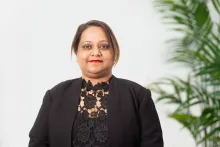
Senior Analyst | Financial Market Infrastructure
The main focus for the Middle Eastern markets in general is to move to ‘emerging market’ status. Most markets in the Middle East follow the T+2 settlement cycle, with some making the move from T+3 to T+2. Qatar moved to T+2 on 25 March 2024).
The region is looking at opening its respective markets to regional investors – over the course of the Forum we formed the impression that the shortening the settlement cycle is something that will need to be worked on at a regional level, rather than at the market level.
The markets currently following the T+3 settlement cycle (Kuwait, Lebanon, Morocco, Oman) may look to shorten the settlement cycle to T+2 but shortening the settlement cycle to T+1 is not something that will happen in the near future.
Environmental, social and governance issues
All markets in the GCC are concerned with ESG issues:
- ESG reporting is voluntary in 2024 but will be mandatory from 2025.
- Most GCC countries are working towards a Net Zero carbon emissions target.
- Research into carbon-trading platforms is underway. During COP28, the UAE market-trialled the pilot carbon-trading platform. The results are now being analysed, but it was clear from Forum discussions that there is market demand for such a platform.
Digital assets and the gold tokenisation platform
HSBC gave a presentation on digital assets and the services it provides in that space. Mark Williamson, Global Head of FX and Commodities Partnerships and Propositions, spoke about:
- the bank’s experience as one of the pioneers of distributed ledger technology (DLT); and
- how HSBC has used DLT since 2018 for post-trade FX confirmations and cross-border payment vs payment, having settled over US$8tn to date.
Additionally, HSBC provided an overview of the new world of gold and the gold tokenisation platform that launched in October 2023. This platform offers a simple and cost-effective mechanism for customers to own physical gold held in HSBC's vault in London.
Cyber security
The TM team spoke to market entities about cyber security. GCC countries do not have any rules or regulations around cyber security yet – though it is an area the GCC regulators are looking at.
The infrastructure entities have their own cyber security requirements in place but, again, this is not something mandated by the local regulators and no cyber security reporting is currently in place.
Day 2: 28 February 2024
Day two of the Forum for Stacey Fernandes and Caroline McCreadie from the Thomas Murray team was a series of one-to-one meetings with the market infrastructures of the GCC and Egypt.
UAE: Dubai Financial Market; Dubai Central Securities Depository, and Dubai Clear
Stacey and Caroline met with representatives of the Dubai Financial Market (DFM), the Dubai Central Securities Depository (DCSD), and Dubai Clear. Dubai Clear is a relatively new central counterparty clearing house (CCP); it was established in April 2020, and is a full member of the CCP12.
In October 2023, the European Securities and Markets Authority (ESMA) withdrew its recognition of the three CCPs based in the UAE, namely:
- the Dubai Commodities Clearing Corporation;
- Dubai Clear LLC; and
- Nasdaq Dubai Ltd.
Recognition was withdrawn because of the UAE’s inclusion on the European Commission’s list of high-risk third countries with strategic deficiencies in their anti-money laundering (AML) and counter-financing of terrorism regimes.
However, on 23 February 2024, the Financial Action Task Force removed the UAE from the AML grey list, and the European Commission also subsequently removed it from the list of high-risk jurisdictions.
Dubai Clear will likely reapply to be recognised as a Tier 1 third-country CCP – however, at this point it is not known if it will have to make a full application, or if allowances will be made for it as a previously recognised member.
Dubai Clear advised that it experienced little impact when ESMA removed the UAE’s CCPs from its list, because Dubai Clear did not have any foreign clients at the time.
Market updates
- DFM is working with the Chinese capital market on dual listings. In November 2023, the DFM, Nasdaq Dubai, and the Shanghai Stock Exchange signed a memorandum of understanding (MoU) in an effort to promote the exchange of knowledge, expertise and information, and enhance efficiency and transparency in both jurisdictions. It also facilitates joint product development including an index or indices, exchange-traded funds (ETFs), ESG and sustainability-linked products. In addition, DFM is working on regional linkages and with SIX Switzerland.
- The project to implement the latest version of the Nasdaq system is in the pipeline. However, no timeline was disclosed.
- The DFM is developing a private market, with three companies expected to list initially.
UAE: Abu Dhabi Securities Exchange
At the ADX, the focus is on upgrading core systems and setting up the three entities (i.e., the exchange, the CSD and the CCP) separately with the required rules and regulations in place per entity. This was due to launch on 1 March 2024, but has been delayed until later in the year.
Market updates
The main development is the replacement of the current trading, clearing and settlement, and depository systems at ADX as part of the Core Platform Upgrade (CPU) project. The project was initiated in June 2021 and is tentatively set to be implemented in Q3/Q4 of 2024.
- The ADX cash CCP is expected to go live at the same time as the system upgrade. The CCP will be a 100% subsidiary of the ADX.
- The ADX derivatives market was launched in 2021 and is on the new Nasdaq system, Nasdaq Machine Engine (NME).
- Discussions are ongoing with the Central Bank of the UAE (CBUAE) to appoint CBUAE as the settlement bank and use central bank funds for cash settlement. This is forecast to go live with the implementation of the new system.
- Discussions are in progress with its Chinese counterparts for dual listings. ADX has signed an MoU with the Shenzhen Stock Exchange (SZSE) with an aim to facilitate cooperation on cross-border indices and ETFs, explore cross-border financing of listed companies, research fixed-income products, and advance market development in both jurisdictions.
- An MoU has also been signed with the Luxembourg Stock Exchange to facilitate dual listings, leverage ESG data, and so on.
- Dual listings of ETFs are in discussion.
UAE: Dubai Financial Services Authority
The Dubai Financial Services Authority (DFSA) is the independent regulator of financial services conducted in or from the Dubai International Finance Centre (DIFC), a purpose-built financial free zone. Caroline and Stacey met with its representatives.
Market updates
- The DFSA introduced regulations on crypto currencies in 2022.
- The focus is on implementing an over-the-counter (OTC) market. It is looking at regulations for OTC trading.
- Monthly reporting of market participants is in place. However, the exchanges are responsible for the overall oversight of participants.
Kuwait
Caroline and Stacey were advised that the market has no immediate plans to reduce the current T+3 settlement cycle. It said that the working days would need to change to reduce the settlement cycle.
The strategic focus is on splitting the three entities (the exchange, the CSD and the CCP) and putting in place the required rules and regulations per entity, which are expected in Q3/Q4 2024.
Thomas Murray is due to visit this market in Q3/2024 for onsite due diligence.
Market updates
- Kuwait Clearing Company (KCC) platform for annual general meetings (AGMs): It is mandatory for all listed companies to use the KCC AGM platform. The second phase of the project will involve live participation during meetings, and the introduction of proxy cards and voting cards.
- Market-wide testing is ongoing for the implementation of the market development project.
- The separation of the existing entities – i.e., the CSD, the exchange and the CCP – is expected to be complete by Q3/Q4 2024.
- The derivatives CCP is expected to go live after the cash CCP goes live.
- Securities lending and borrowing regulations are under review.
- Multi-currency settlement is under consideration as a way of helping with the settlement of fixed-income securities, starting with the US dollar.
- Digital assets: Crowdfunding regulations went live in January 2024. The fintech project looks at the licensing of assets on the Kuwait Stock Exchange and will be subject to the approval of the Central Bank of Kuwait.
Oman
Market updates
- The MSX and Muscat Central Depository (MCD) are both considering replacing their current settlement systems and are issuing requests for proposals.
- ESG reporting is voluntary for 2024 and will be mandatory from 2025.
- Focus remains on the divestment plans in the market.
- The Oman Investment Authority, which is the holding company of both MSX and MCD, has 160 companies under its umbrella. It is planning to list some companies to increase liquidity in the market. Four initial public offerings (IPOs) are in the pipeline for 2024.
- Oman is establishing an alternative market for family businesses.
- Oman is looking at ways it can move from ‘frontier’ to ‘emerging’ market status.
- The Omani market has consolidated its pension funds.
- MSX launched an AGM platform.
Bahrain: Bahrain Bourse, Central Bank of Oman, and Bahrain Clear
Representatives of BHB, the Central Bank of Oman and Bahrain Clear met with Stacey and Caroline to provide an overview of recent developments in the Bahraini market.
Market updates
- Bahrain Clear implemented a new delivery-versus-payment model on 14 March 2024. A grace period of three months following the effective date has been provided to facilitate a smooth transition for all stakeholders.
- Government-led IPOs are in the pipeline.
- The regulation of digital assets (tokens) was updated in March 2023.
Saudi Arabia: Tadawul Exchange, Edaa, and Muqassa
Stacey and Caroline met with representatives of the Tadawul Exchange, Edaa (the securities depository centre) and Muqassa (which provides central counterparty clearing services for all securities traded on the Saudi exchange).
Thomas Murray is scheduled to visit Saudi Arabia in Q3 of 2024 for onsite due diligence.
Market updates
- The Tadawul Group is looking at market linkages across the GCC.
- Tadawul has a particular interest in the Chinese capital markets, Shanghai and Shenzhen. MoUs for dual listings have been signed with Hong Kong, Singapore, and Chinese counterparts.
- Phase 2 of the post-trade transformation programme is to be implemented in June 2024 (SWIFT messaging 20022, reporting).
- Plans are progressing to accept non-cash collateral (i.e., equities).
- Wamid, a Saudi Tadawul Group (STG) subsidiary, is concerned with the digital side of STG’s business.
- The Saudi Central Bank (SAMA) Netting Law is expected later this year.
Qatar: Edaa, Qatar Financial Markets Authority, and HSBC
Representatives of Edaa, the Qatar Financial Markets Authority (QFMA), and HSBC also met with Stacey and Caroline on the second day of the HSBC MENAT Forum.
Qatar plans to move to T+2 on 25 March 2024.
Market updates
- The QFMA, the Qatar Central Bank (QCB) and Qatar Financial Centre Regulatory Authority have developed an action plan to develop the Qatar capital market.
- There is a plan to implement two CCPs in the market (i.e., equities and derivatives), though no timeline has yet been set.
- The derivatives exchange has a tentative launch date of June 2024.
Egypt: Egyptian Central Securities Depository
The Egyptian CSD met with Caroline and Stacey. ECSD went live with the migration of treasury bonds and treasury bills from the Central Bank of Egypt (CBE) on 14 May 2023 and 24 September 2023, respectively.
The wars in Gaza and Sudan, right on Egypt’s borders, damage Egypt’s already fragile economy. Revenue from the Suez Canal has dropped by 50% and the tourism industry has taken a huge blow.
However, Egypt has signed a deal with the UAE government that means Egypt will receive US$35bn to build a new city. This is in addition to Egypt’s increased IMF funding.
Many thanks to the team at HSBC for hosting the Forum and for their assistance with this report.
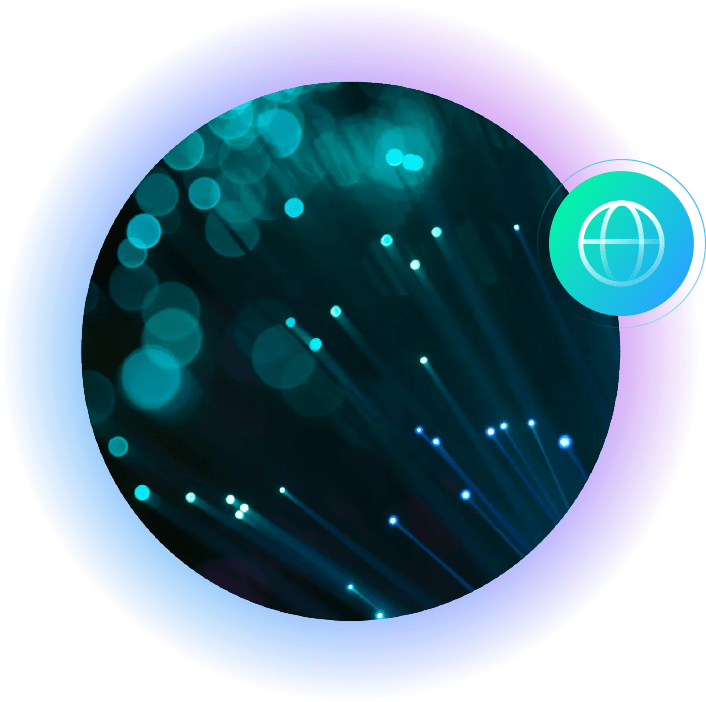
Orbit Intelligence
Centralise your monitoring and reporting, access Thomas Murray risk assessments and third-party data feeds.
We safeguard clients and their communities
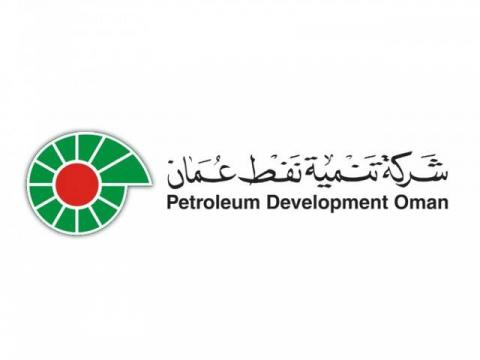
Petroleum Development Oman Pension Fund
“Thomas Murray has been a very valuable partner in the selection process of our new custodian for Petroleum Development Oman Pension Fund.”
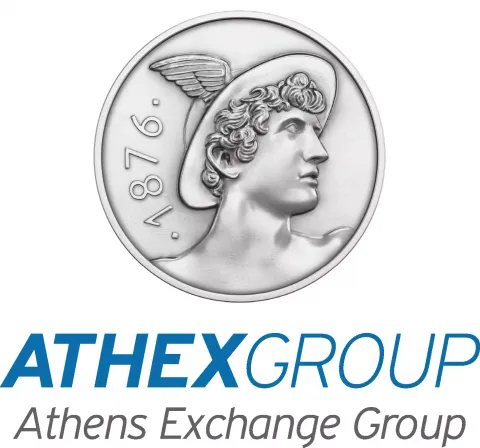
ATHEX
"Thomas Murray now plays a key role in helping us to detect and remediate issues in our security posture, and to quantify ATHEX's security performance to our directors and customers."

Northern Trust
“Thomas Murray provides Northern Trust with a range of RFP products, services and technology, delivering an efficient and cost-effective solution that frees our network managers up to focus on higher Value activities.”
Insights

Why 72 hours is the New Standard for M&A Cyber Due Diligence
A decade ago, cyber due diligence sat somewhere between “nice to have” and “we’ll deal with it post-close.” That world no longer exists.
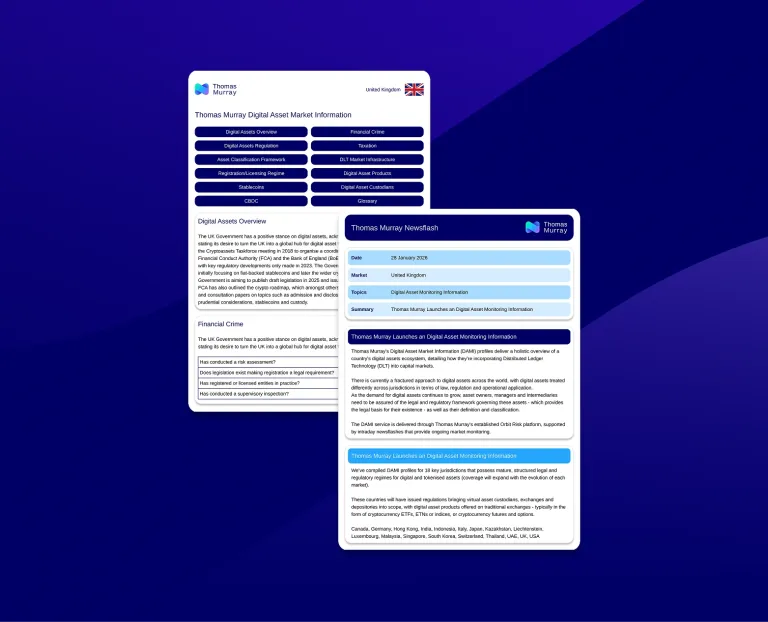
Thomas Murray Launches Digital Asset Market Information (DAMI)
Thomas Murray, a global leader in risk management, due diligence, and cybersecurity services, is proud to announce the launch of Digital Asset Market Information (DAMI).
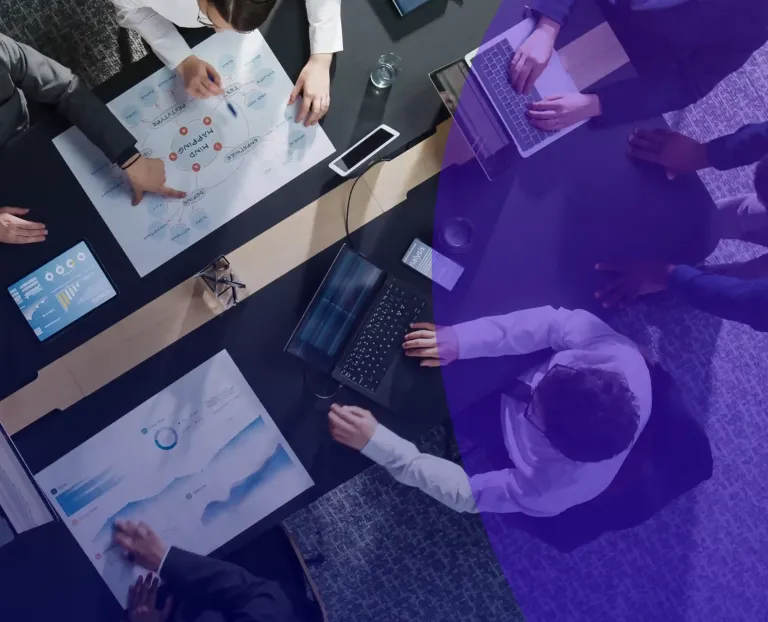
Solving the "Scale Paradox": How to Automate Portfolio Oversight with Fewer People
In 2026, private equity technical teams are facing a "Scale Paradox": portfolios are growing in complexity, while in the internal teams responsible for operations and cybersecurity oversight, headcounts remain stagnant.
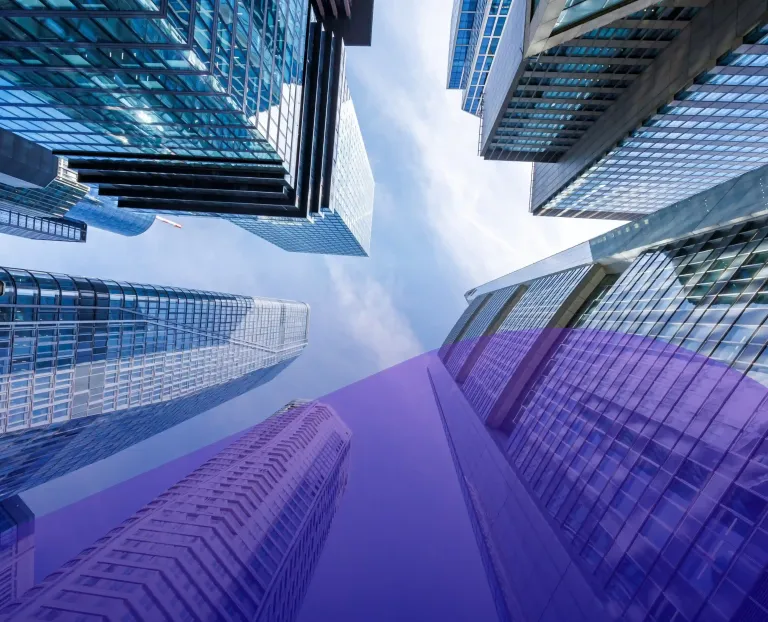
How Private Equity Hackers Choose Their Targets
Private equity firms sit at the intersection of high-value financial transactions, sensitive deal data, and an expanding portfolio of technology heavy portfolio companies – and it’s this combination that makes PE an attractive target for cyberthreat actors.

